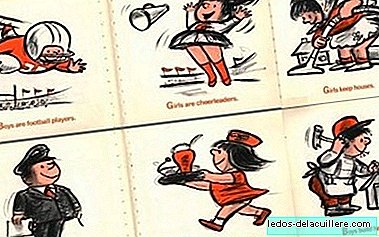
We have already seen that gender stereotypes are widespread beliefs about the attributes that characterize men and women, and that are acquired through learning processes involving cultural factors such as the media, family, school ...
In this way, the process of gender socialization is complex, it is produced through different reinforcements and models. Differential gender reinforcement occurs when men and women are valued, rewarded or punished for different behaviors, interests or expression of emotions.
However, although these agents of gender differentiation often contribute to the maintenance of stereotypes, they can also be agents for changing inequalities, so their importance in this regard should not be underestimated, and it must be claimed and endeavored that Do not perpetuate stereotypes.
However, stereotypes are characteristic of their strong resistance to change and their effect of self-compliance or "prediction," which affects not only the group that generally stereotypes (the man, through patriarchal society) but the stereotyped group (the woman).
With this, it is not only the man but the woman herself who adjusts her behavior to this stereotype, which no longer reflects the characteristics, or beliefs of the woman, thus contributing to maintaining inequalities.
Williams and Best, the authors who enunciated the stages in the acquisition of sexual categories, developed in 1990 a theory of how gender stereotypes contribute to maintaining male-female differences, for which they begin by differentiating three related concepts:
- Sexual roles: important activities in which there are differences in rates of men and women.
- Gender role stereotypes: beliefs about which activities are more appropriate for men and which for women.
- Gender trait stereotypes: psychological characteristics differentially attributed to one or the other sex.
For these authors, psychological differentiation is the one that contributes most to the maintenance of differences in roles. So, since the psychology of women and that of men is different, it is justified that certain tasks correspond to men and others to women, just as some professions are more suitable for men and others for women.
But Psychology has also shown that when differences between the sexes can be explained from contextual factors, without linking to the fact of being male or female.
In short, stereotypes are simplifications, schematizing reality through the generalization of the characteristics of the groups, allowing us to adapt more easily to a complex reality, and also affect the expectations, behaviors and beliefs of individuals.
That is why it is important that our children understand that many beliefs about what is "boys" and "what is girls" are unfounded, although in reality it is we who must first detach ourselves from the gender stereotypes with which we have grown.












